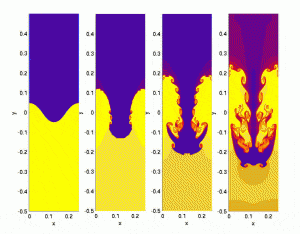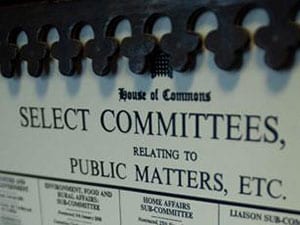Lunch Hour Lecture: From gases to gloops – instabilities in fluids
By Thomas Hughes, on 25 February 2016
Gases, gloops, waves and cloud formations: Dr Helen Wilson (UCL Mathematics) helped us explore the mathematical explanation for such instabilities in fluids in this Lunch Hour Lecture.
Waves and drips: instabilities in nature
Instabilities in fluids can be caused by a myriad of different factors. Dr Wilson talked us through a number of common instabilities that we can see in our everyday lives.
Waves and some cloud formations for example are caused by shear. This is the idea of two or more streams moving at different speeds or directions. This is called the Kelvin-Helmholtz instability and creates the familiar wave shapes as the streams push in different directions.
Some natural instabilities are caused by density. Pour a dense, gloopy fluid into a less dense fluid and through additional factors such as gravity, the denser fluid will move through the less dense fluid. This is called the Rayleigh-Taylor instability (see image).

Rayleigh Taylor Instability via Wikimedia Commons
 Close
Close



